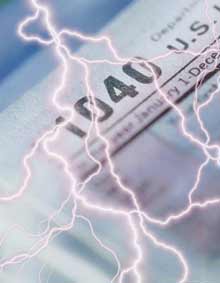Why is the 1031 Tax Deferred Exchange important to a Real Estate Property Investor?
An investor in real estate understands how important it is to preserve wealth and assets. In the frequently changing world of taxation, the investor is fortunate to have IRC Section 1031. This tax code allows the investor to exchange from one investment property to another and defer taxes on the gain. This means that a 1031 Exchange is a rollover of equity of like properties, rather than an avoidance of tax. Thus the investor continues to build wealth through real estate investment, and maintains the hard earned equity. Upon the passing through inheritance any tax liability will be limited to the gains from the date of the inheritor's acquisition, not during the years of ownership.
So, in essence the taxes that are saved now are never paid.
How to go about a 1031 Exchange and
Guidelines regarding the 1031 Exchange:
- Taxpayer finds a buyer and sells the property through a Qualified Intermediary.
- Taxpayer buys replacement property through the Intermediary.
- The parties may not know each other and their properties can be in different states.
- The exchange period begins on the day the relinquished property is transferred and ends on the earlier of 180 days after or the due date (including extensions) of the tax return for the taxable year in which the transfer of the relinquished property occurs.
- The Intermediary should be financially strong with knowledge to make the transaction hassle and worry-free. The taxpayer's agent, broker, attorney, accountant, or family member is excluded as an intermediary.
Calculation Example:
Current Market Value - $200,000
Mortgage - $ 80,000
Equity - $120,000
Depreciation Taken - $ 20,000
Taxable Gain on Sale - $ 70,000
$200,000 Current Market Value
-$150,000 Original Purchase Price
+$20,000 Depreciation
$70,000 Taxable Gain
Tax on Gain at 20% = $14,000 *Other expenses/loses could affect the gain.
*A property can be sold for less than purchased for and still have a gain.
Without a properly executed 1031 Exchange: Equity ($120,000) less tax ($14,000) =$106,000 available towards purchase of a new property.
With a properly executed 1031 Exchange: If the tax-deferred exchange of the property was properly executed, TAX WILL BE DEFERRED and the investor will have $120,000 to use towards the purchase of another investment property.
The concept of a tax-deferred exchange is easy to understand, however, there are many details involved in an exchange that need careful consideration. Before taking steps towards a 1031 tax-deferred exchange, please consult your CPA, attorney, or tax advisor.
On the web at
www.EquityTitle.com 
